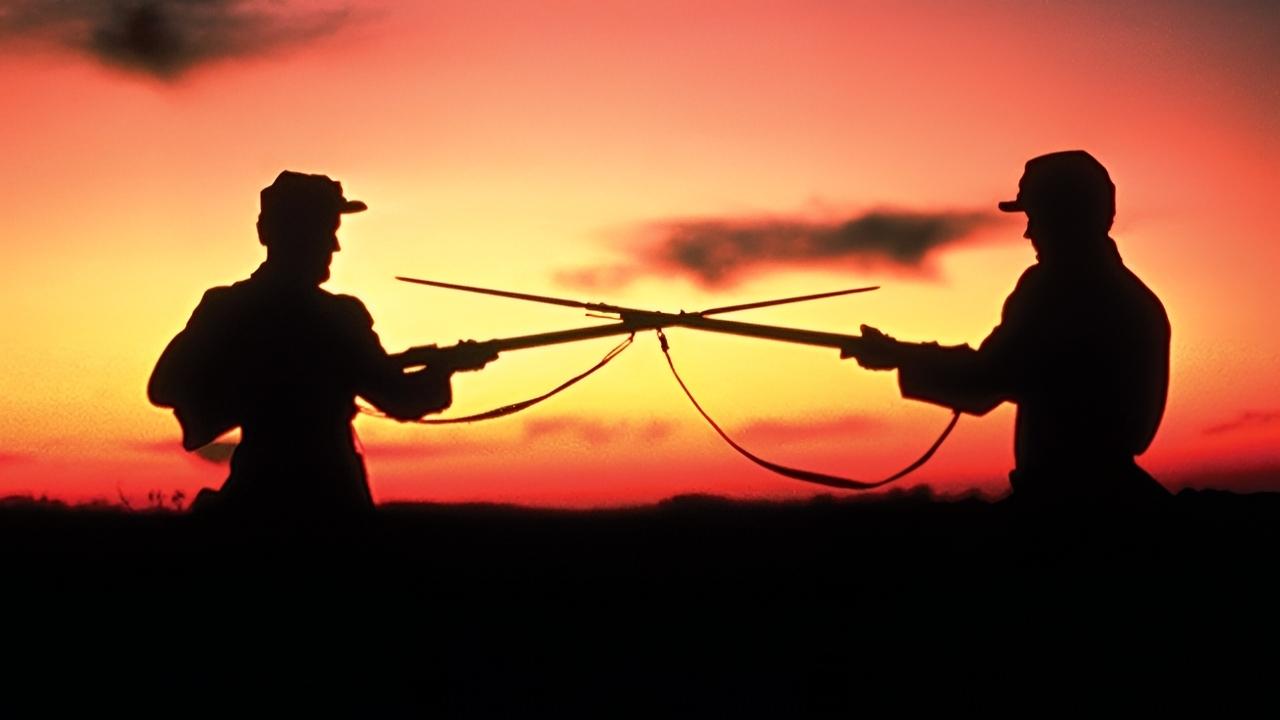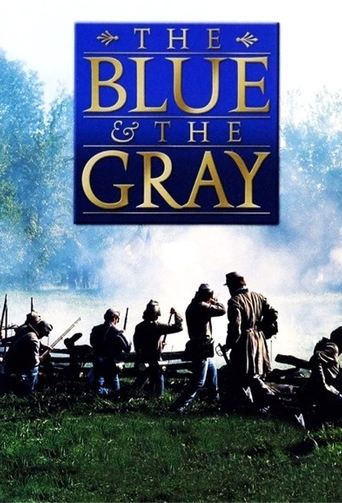Stevecorp
Don't listen to the negative reviews
Baseshment
I like movies that are aware of what they are selling... without [any] greater aspirations than to make people laugh and that's it.
Payno
I think this is a new genre that they're all sort of working their way through it and haven't got all the kinks worked out yet but it's a genre that works for me.
Geraldine
The story, direction, characters, and writing/dialogue is akin to taking a tranquilizer shot to the neck, but everything else was so well done.
virek213
America's existence, as a beacon for freedom and democracy around the world, has often seemed to be (and frequently is, in reality) a work in progress. Nowhere is that better illustrated in the event that is oftentimes known as the War Between The States (North and South), but generally known as the Civil War. A bitter war fought largely over the question of whether it was right to keep anyone, especially those of African descent, as slaves, the war almost eviscerated the country during four long bloody year, from 1861 to 1865. It was only when the 13th Amendment and the Emancipation Proclamation became law that the war ended, as too did slavery, and the long march toward full civil rights had really begun. This was the subject for the epic 3-part miniseries THE BLUE AND THE GRAY, which aired on CBS on November 14, 16, and 17, 1982.The principal focus is on two families: the Geysers, a farm family from Charlottesville, Virginia who have no prurient interest in the issue of slavery that is essentially fueling the war but are sympathetic to the South; and the Hales, who are owners of a small newspaper in Gettysburg, Pennsylvania and anti-slavery/pro-Union. They become a microcosm of this long, costly, bloody war that nearly destroyed America before it could even reach its 90th year of existence as a country; and even in the Geyser family, there is a schism. Both families, though, do reunite after the end of the war, but not before the war more or less claims its last victim in President Abraham Lincoln, when John Wilkes Booth guns him down at Ford's Theatre.In the meantime, the Civil War is re-enacted, under the bounds of what could be shown on television, with a fair amount of pain and horror without an over-reliance of melodrama, but with solid acting by a huge cast of great people, including Stacy Keach; Colleen Dewhurst; Lloyd Bridges; Warren Oates (in one of his last roles, as Major Welles); Sterling Hayden (as John Brown); Rip Torn (as General Ulysses S. Grant); Robert Vaughn; Paul Winfield; Julius Harris; Diane Baker; Rory Calhoun; and, last but not least, Gregory Peck, in his first-ever dramatic TV appearance, as Lincoln. All of this is brilliantly bought together by veteran director Andrew V. McLaglen, who had done the Civil War in fictional form prior to this, in the form of 1969's THE UNDEFEATED (with John Wayne), and 1965's SHENANDOAH (with James Stewart).Even in the restrictive confines of TV, and even when compared to later films on the subject like GETTYSBURG and LINCOLN, THE BLUE AND THE GRAY does very little skimping over what war in general, and this singular war in particular, does to people not only on both sides of the battle lines but also to those innocents caught in the middle. And despite its extreme length, of close to six and a half hours, this is still one of the best miniseries ever produced in TV history. It should be watched by anyone serious in understanding our nation's history in general, and the Civil War in particular, and is essential just for anyone still interested in historically based storytelling, small screen or otherwise.
denis888
Cannot believe I never heard of theses mini-series before. But recently, have gotten the complete longer version and watched it all in several takes. Yes, I agree with many of the decent critics about this film. That was the 1982, and yes, if you compare The Blues & The Gray with mighty grandeur of Glory, Gettysburg or Gods & Generals, you will have to admit that the serial suffers all the typical problems. True, the lack of budget is obvious, and it is obvious that there had to be more soldiers on both sides in all shown battle scenes, same may be said about scenes depicting camps or cities. True, some lines of actors are hammy, and some actors simply played not well enough. Yes, sometimes you pay attention to obvious goofs and anachronisms concerning rifles, uniforms, or other minutiae. But still, good impressions remain. Stacey Keach, great late Gregory Peck, John Hammomd, Cooper Huckabee and many many others did a very decent job. The serial captivates and holds you all 7 hours. The love line is of great success, and some mild humor (in scenes with John and Kathy) make it more valuable. Both sides of the war are shown with certain warmth and sympathy, there are heroes, cowards, villains, traitors, real giants on both sides. My personal grade goes to Gregory Peck as Lincoln, Lloyd Bridges, Cooper Huckabee, Sterling Hayden (excellent part of the film!), Rip Torn, Royce Applegate (who will shine soon in Gettysburg), and Julius Harris. To my mind, there are several powerful scened in the serial, but one which is Truly outstanding and mighty is the conversation between John Geyser and a group of black runaways. This scene is a huge success and a moving tribute to those who fought for Liberation. I highly recommend this film
goddancredmond
Every cliché' in the book is used. And, worse, far more than once. If you can't guess what's going to happen in a particular scene then you haven't watched many if any movies. A far better soap opera on the Civil War is "North and South". You will find far better acting as well as a better and more believable story line. What's really a shame is that there is some very good talent in the mini series that is completely wasted. Even the scene when the Gettysburg Address is given is vastly overblown and forced. That scene is indicative of the series taken as a whole. Instead of being understated as the original speech was, it and the series take on the tone of Edward Everett, the speaker who was just before Lincoln. Edward Everett's saving grace is that his speech was only some 2 1/2 hours long. The mini-series is 7 1/2 hours in length, though it seems much, much longer. Lincoln's famous 300 words than didn't even take 3 minutes to recite.
fkerr
`The Blue and The Gray' is not a story about the Civil War. It is a long drama about a family set at the time of that war. Running more than six hours, it is indeed long. Yet, anyone interested in human relationships will find that the time is well spent and that no dead points exist. The snippets of the Civil War form a focus for the story and explain some of the relationship issues. They also remind the viewer what a truly difficult time it was for families and for our nation.

